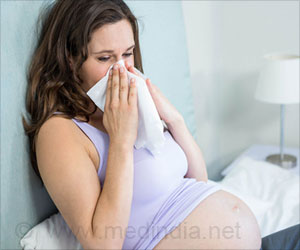
But they have not been able to say whether the mother’s exposure to infection is truly the cause, or whether other factors are behind this link. Researchers from Karolinska Institutet have now studied this in more detail.
The current study is based on data on more than 500,000 children born between 1987 and 2010. The aim was to investigate whether there is a causal relationship between infections in the woman during pregnancy and autism or intellectual disability in the child.
Advertisement
Similar to previous studies, researchers could see that infections that required specialist care during pregnancy were linked to an increased risk of autism and intellectual disability in children.
But when the researchers studied siblings, the result was different. In comparisons between sibling pairs where the mother had had an infection during one pregnancy but not the other, they could not find any link between infection and the children’s risk of autism.
They also examined the risk of autism and intellectual disability in children if their mother had been diagnosed with an infection during the year before her pregnancy.
The idea was that infection before pregnancy would not be linked to an increased risk of autism and intellectual disability if it was the infection during pregnancy causing the neuropsychiatric conditions.
READ RELATED: Shan Masood Height, Weight, Age, Body Statistics
There Is Something More Than Infection in Autism Risk
Here, the researchers could see that infections during the year before pregnancy were linked to the risk of autism to the same degree as infections during pregnancy, but not linked to the risk of intellectual disability.
These results suggest that the increase in risk is more likely to be explained by factors common between family members, such as genetic variation or certain aspects of the shared environment.
Since the results were less clear for intellectual disability, it cannot be ruled out that infections during pregnancy may affect children’s risk for this condition.
The researchers emphasize that they have only looked at the diagnosis of infections in general. The study does not contradict the significance of the well-established links between some specific viral infections during pregnancy, such as cytomegalovirus infection and rubella, and the risk of serious developmental conditions in the child.
They also point out that infections by the agent causing COVID-19 were not included in their study. It is still critical for pregnant women to follow their midwife’s advice regarding infection control.
Source: Medindia
Source:








